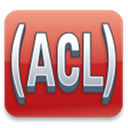Uncovering the Best LispWorks Alternatives for Your Development Needs
LispWorks is a powerful commercial implementation and integrated development environment (IDE) for the Common Lisp programming language, offering various editions for personal, professional, and enterprise use. While its Personal Edition is free and provides a full Common Lisp compiler, it comes with limitations on program size and duration, and lacks runtime delivery support. For those seeking different features, more flexibility, or open-source options, exploring a robust LispWorks alternative is essential.
Top LispWorks Alternatives
Whether you're looking for a free, open-source solution, a specialized compiler, or an environment tailored for specific use cases, the Common Lisp ecosystem offers a wealth of excellent choices. Here are some of the top alternatives to LispWorks:

Hy
Hy is a unique Lisp dialect embedded directly in Python, making it a compelling LispWorks alternative for developers who want to leverage the vast Python ecosystem. It's free and open-source, available on Mac, Windows, and Linux. Hy offers an interpreter and supports object-oriented and scripting paradigms, allowing you to transform Lisp code into Python's Abstract Syntax Tree.

AUMS
AUMS is a free personal alternative to LispWorks, primarily available on Windows. It's a console-based environment that features strong support for macros, making it suitable for users who prefer a minimalist setup and rely heavily on macro programming.

Steel Bank Common Lisp
Steel Bank Common Lisp (SBCL) is a highly regarded, high-performance Common Lisp compiler that stands out as a robust LispWorks alternative. It's free and open-source with a permissive license, supporting Mac, Windows, and Linux. SBCL includes a powerful compiler and a debugger, making it a favorite for serious Common Lisp development.

CLISP
CLISP is a portable ANSI Common Lisp implementation and development environment, offering a comprehensive LispWorks alternative. It's free and open-source, available across Mac, Windows, and Linux. CLISP provides an interpreter, compiler, debugger, CLOS (Common Lisp Object System), MOP (Metaobject Protocol), FFI (Foreign Function Interface), Unicode support, sockets, and CLX, making it a versatile choice for various projects.

CMU Common Lisp
CMU Common Lisp (CMUCL) is another free, high-performance implementation of Common Lisp, serving as a solid LispWorks alternative, particularly for Unix-like platforms including Mac and Linux. It primarily conforms to the ANSI Common Lisp standard, offering a reliable and efficient environment for Lisp programming.

Clozure Common Lisp
Clozure CL (CCL) is a free, open-source Common Lisp implementation with a long-standing reputation, making it a viable LispWorks alternative. It runs on Mac, Windows, Linux, and BSD, and is known for its fast compilation and execution speeds, making it an excellent choice for performance-critical applications.

Allegro CL
Allegro CL is a powerful dynamic object-oriented development system available as a free personal edition, running on Mac, Windows, Linux, and BSD. While LispWorks is a commercial offering, Allegro CL offers a robust LispWorks alternative for complex, enterprise-wide application development, providing extensive features for professional Lisp programmers.

GNU Common Lisp
GNU Common Lisp (GCL) is the official Common Lisp for the GNU project. It's free and open-source, supporting Windows, Linux, and BSD. GCL differentiates itself by utilizing the system's C compiler to produce native object code, offering a strong LispWorks alternative for those seeking good performance and deep integration with system compilers.
Ultimately, the best LispWorks alternative for you will depend on your specific project requirements, preferred operating system, and whether you prioritize open-source solutions, performance, or specific development features. Explore these options to find the perfect fit for your Common Lisp programming journey.